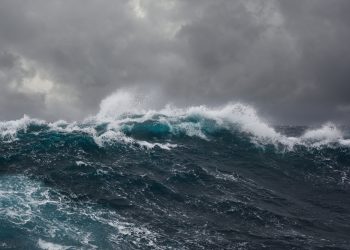The International Maritime Rescue Federation (IMRF) mentioned that building capability rather than reacting to tragedy should be the priority for maritime search and rescue (SAR), in a statement delivered at the World Humanitarian Summit
The IMRF supports the UN Secretary General Ban Ki-Moon’s push to find solutions to the widening funding gap and to move investment from external crisis intervention to providing local and national SAR response capability to manage the initial response and structure plans to escalate efforts with international support.
As IMRF, CEO Bruce Reid explains:
“Not all humanitarian crises can be planned and managed for, but many have common characteristics and one is the lack of sophistication in local and national SAR coordination.For the maritime interventions we need to see countries develop greater co-ordination capability – one of the most important aims of the International Maritime Organisation’s (IMO) Global SAR plan.”
At the Summit, the international charity that aims to prevent loss of life in the world’s waters, called for the promotion, formation and development of maritime search and rescue services across the world at the World Humanitarian Summit.
The commitment to rescue any person in distress at sea is long-standing and internationally agreed and the IMRF, representing 114 organisations spanning 48 countries, offered both a call, and a commitment, to action at the Summit.
Specifically, the IMRF committed to:
• Champion the completion of the International Maritime Organization’s Global Search and Rescue Plan; supporting Governments and Search & Rescue organisations internationally to deliver an integrated sea rescue service.
• Assist in building improved and fully coordinated response capability in areas of high risk; reducing the global drowning death toll of migrants, notably in the Aegean and Eastern Mediterranean, by convening sea Search & Rescue actors to provide vessels, training and equipment – resulting in permanently strengthened local capability.
• Offer an international forum for dialogue on, and delivery of, sea rescue; inviting national and international humanitarian actors to explore innovative and higher-impact action.
Helen Morten, Head of International Advocacy at RNLI, delivered the following statement to the chamber on behalf of the IMRF:
“Every life lost at sea is a tragedy. A tragedy heightened, given the long-standing, internationally agreed commitment to rescue any person in distress at sea. Irrespective of circumstance,whether a Syrian family seeking asylum, mixed migrants leaving Libyan shores or a Rohingyan refugee, every person in peril at sea should be rescued and transferred to safety. This is not simply a moral conviction but an internationally agreed commitment. In the past 18 months, 5127 migrants –men, women and children – have gone missing, believed drowned, and the number of people making the Mediterranean crossing is unprecedented. Never has there been a more urgent need for the international community to cooperate. Simply, sea rescue must now be recognised, and resourced, as a priority humanitarian intervention.”
“Tackling this growing problem can only be helped through close co-operation along with the right equipment and training and the completion of the International Maritime Organisation’s Global Search and Rescue Plan.”
Source &Image credit:IMRF

































































